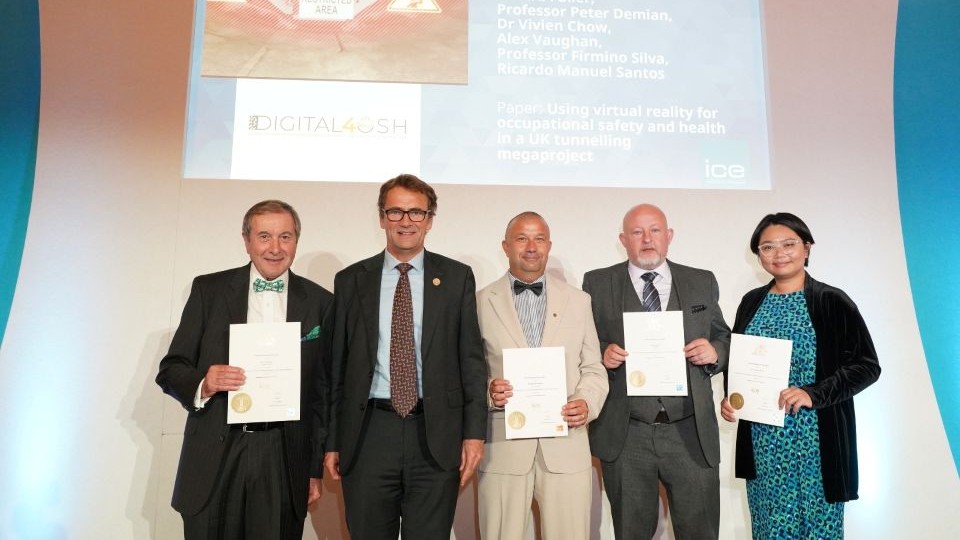According to the Health and Safety Executive (HSE), 138 people lost their lives in work-related accidents in the UK in 2023/24. Of these, 51 fatalities occurred in construction, making it the deadliest sector – now 70% worse than its 2020 fatality rate.
In response, Loughborough academics from the School of Architecture, Building and Civil Engineering are helping lead a global movement through Digital4OSH, an international research collaboration focused on improving occupational safety and health (OSH) through digital innovation.
“Even one is too much,” says Loughborough’s Dr Ali M. Saad, who leads the international Digital4OSH working group. “At one point, fatalities in construction were seen as an unavoidable cost – a view once common across many industries. But while others have improved, construction continues to top fatality statistics. Technology has given us better tools and insights, but we must ask: is technology alone enough? And are we using it as effectively as we can?”
Digital4OSH is jointly led by Loughborough and Portugal’s ISLA (Polytechnic Institute of Management and Technology) – alongside other academic and industry partners.
“Digital4OSH was born out of the need to rethink how we approach safety,” explains Dr Manuel Tender, one of the founders of Digital4OSH. “We bring together researchers and professionals to integrate digital technologies – such as Building Information Modelling (BIM) – with safety processes. But most importantly, we’re applying these in real-world contexts, not just theory.”
From virtual safety training to smart modelling of construction risk, Digital4OSH is creating a data-rich Digital Observatory and sharing findings with both academic and industry audiences.
Peter Demian, Professor of Digital Construction Engineering at Loughborough, describes the work as vital and transformative. “This is the kind of multidisciplinary challenge where Loughborough thrives” he said. “Digital4OSH tackles research that spans both technology and human systems – and delivers meaningful impact to industry.”
However, researchers say that access to tools alone will not eliminate fatalities. True change requires a systemic understanding of how organisations adopt and adapt technologies – and how safety cultures are shaped.
“Many innovations fail at the point of implementation,” says Dr Vivien Chow, Senior Lecturer in Construction and Project Management at Loughborough University. “We must understand not just what works, but how and why. Through Digital4OSH’s case studies, we can learn from organisational processes and improve safety performance across the board.”
The group's groundbreaking work has recently been honoured with the 2025 Charles Manby Prize from the Institution of Civil Engineers (ICE) for the paper “Using Virtual Reality for Occupational Safety and Health in a UK Tunnelling Megaproject.” This prestigious award recognises papers of exceptional quality and impact in the fields of civil engineering, construction, and materials science.

